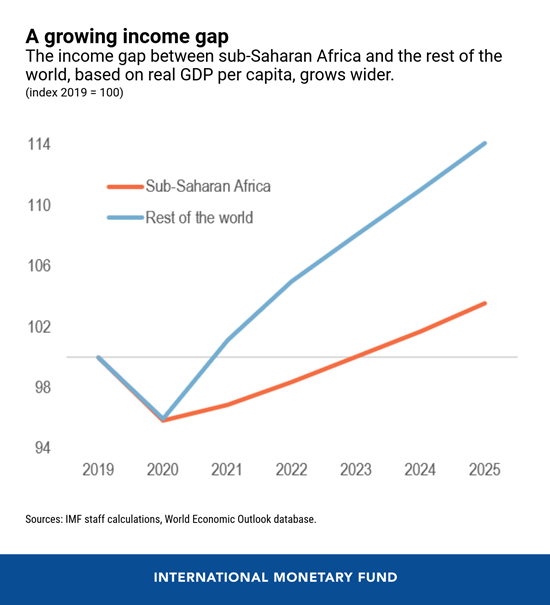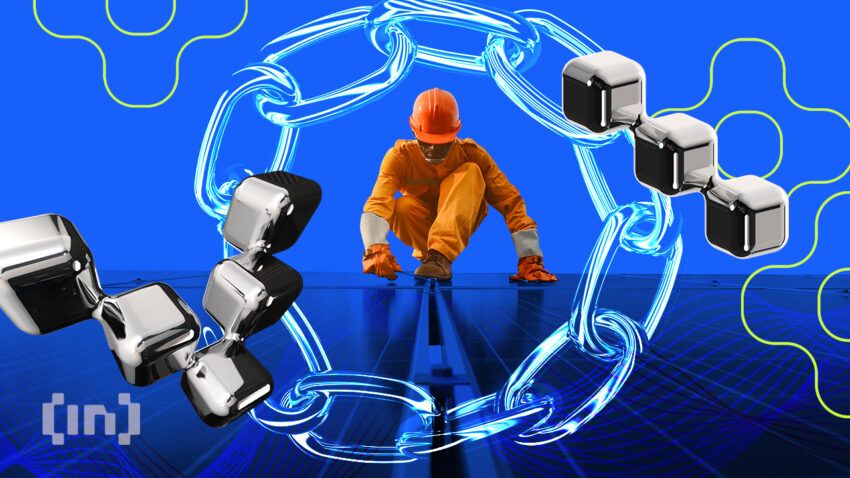Can Blockchain Revolutionize African Finance?
Uncovering Cardano's goal to revolutionize Africa's financial systems using blockchain technology.

As the world turns its attention to new possibilities of digital technology, blockchain platform Cardano hopes to make inroads in the pursuit of change in Africa. But the challenges are many.
Cardano sets its sights on helping transform a continent’s financial landscape. In this article, we will dive into how this blockchain platform aims to reshape Africa’s economy, unlocking opportunities for growth and prosperity through strategic partnerships and innovative solutions.
Blockchain for a Brighter Future
Cardano, an ambitious blockchain platform, has ventured into Africa with several goals. By leveraging partnerships in identity management, supply-chain tracking, and financial inclusion, it hopes to revolutionize the continent’s financial systems. These solutions have arguably shown promise, providing African nations with fresh opportunities for growth.
A New Era of Identity Management
Identity management stands as a crucial aspect of Cardano’s African endeavors. With many people lacking official identification, financial exclusion runs rampant.
The Cardano blockchain aims to tackle this issue by developing secure, decentralized digital IDs. Millions could thereby gain access to vital services, including banking and education.
Supply Chain Transparency
In addition, Cardano working hard on supply chain tracking. Fragmented supply chains often hinder African industries, leading to inefficiencies and corruption. By employing blockchain technology, Cardano hopes to offer transparent, tamper-proof solutions that enable businesses to trace products from origin to destination. This enhanced visibility promotes ethical practices and bolsters consumer trust.
Financial Inclusion: A Game Changer for Economic Growth
Furthermore, Cardano’s commitment to financial inclusion is transformative, offering the chance to reshape Africa’s economic landscape. Expanding access to financial services for unbanked populations fosters economic growth, reduces poverty, and opens doors to new opportunities.
Through blockchain-based solutions, Cardano hopes to enable secure transactions, facilitate remittances, and provide affordable credit, ultimately empowering millions across the continent.

Secure Transactions: A Foundation for Trust
Security is a cornerstone of financial inclusion. Cardano’s blockchain technology can provide a secure environment for transactions, instilling confidence in the financial system. By using cryptography and decentralized networks, Cardano ensures that transactions are tamper-proof, minimizing the risk of fraud and building trust among users.
Facilitating Remittances: Bridging the Gap
Moreover, remittances play a vital role in Africa’s economy, with millions of people relying on money transfers from abroad. Traditional remittance channels are often slow and expensive, burdening both senders and recipients.
Cardano’s blockchain solutions may help streamline this process, offering faster, more affordable options for cross-border transfers. By reducing transaction fees and wait times, Cardano can help maximize the impact of remittances on local economies.
Affordable Credit: Unlocking Opportunities
Access to affordable credit is essential for economic growth, as it enables individuals and businesses to invest in their future. In Africa, high-interest rates and stringent lending requirements often hinder this access.
Cardano’s blockchain technology offers decentralized lending platforms that connect borrowers with lenders directly, bypassing traditional financial intermediaries. This peer-to-peer lending model can lead to more competitive interest rates and flexible loan terms, opening doors for countless entrepreneurs and individuals to realize their dreams.
Digital Wallets: Financial Access at Your Fingertips
Similarly, Cardano’s digital wallets represent another step towards financial inclusion. These wallets allow users to store, send, and receive digital assets, including cryptocurrencies and other blockchain-based tokens.
With the proliferation of smartphones in Africa, digital wallets can bring financial services to even the most remote and underserved communities. By simplifying access to financial tools, Cardano’s digital wallets can play a critical role in bridging the financial divide.
Addressing Neo-Colonialism Concerns: A Deeper Dive
Yet, Cardano’s African ambitions have not escaped criticism, with some detractors arguing that the company’s approach resembles neo-colonialism by imposing Western solutions without understanding local needs.
To counter these allegations, Cardano is actively engaging with African communities and partnering with local organizations, ensuring that initiatives are tailor-made to address regional challenges.
One example is Cardano’s collaboration with the Ethiopian Ministry of Education. Working closely with government officials and local educators, Cardano has developed a digital identity system customized to the Ethiopian context. This system, called Atala PRISM, enables the secure tracking of student and teacher performance, providing data to inform policy decisions and improve the quality of education.
Community Engagement
With a view to community engagement, Cardano has prioritized working with local stakeholders. In Tanzania, for example, Cardano has partnered with World Mobile, a mobile network provider, to extend affordable internet access to rural communities. This partnership not only improves connectivity but also facilitates the adoption of Cardano’s blockchain solutions. By engaging directly with the end-users and involving them in decision-making, Cardano ensures that its initiatives are relevant and impactful.
Challenges to Cardano in Africa
Despite the excitement surrounding Cardano’s African initiatives, some argue that the projects lack transparency and accountability, making it difficult to evaluate their true impact. There are concerns about the potential misuse of funds and resources, and that the projects may not be adequately monitored.
Additionally, centralization concerns have arisen, with some suggesting that Cardano’s initiatives might lead to dependence on the Cardano Foundation and IOHK, the organizations driving these projects.
The long-term benefits of these initiatives have also come under scrutiny, as their success hinges on the widespread adoption of Cardano’s technology. Skeptics argue that it is uncertain whether the technology will gain traction, and if not, these projects may fail. Technological barriers, such as limited internet access and low levels of digital literacy in many African countries, fuel these doubts.
Another criticism leveled at Cardano’s African initiatives is the resistance they may face from existing financial institutions in Africa. Some argue that these institutions might view the blockchain-based projects as a threat to their established operations. Other critics contend that Cardano’s approach resembles neo-colonialism by imposing Western solutions without understanding local needs.
Harnessing Innovation
The opportunity for blockchain technology to revolutionize Africa’s economic systems cannot be overstated. With its capacity for decentralization, security, and transparency, blockchain presents a unique solution to address the continent’s challenges.
Cardano’s African ambitions showcase the transformative power of this technology and invite further exploration. Additionally, blockchain could address Africa’s land registry issues by providing a transparent, tamper-proof record of land ownership. As a result, this would not only reduce corruption and disputes but also facilitate access to credit, as land can be used as collateral.
In Ghana, the government is exploring the use of blockchain for land administration, and Cardano’s expertise in the field could prove valuable.
Moreover, blockchain technology can help to tackle Africa’s energy challenges. Decentralized energy grids, enabled by blockchain, can offer a more reliable, efficient, and cost-effective energy supply. Cardano’s blockchain framework could facilitate the creation of such grids, empowering local communities to generate and manage their own energy resources.

Blockchain technology has seen a surge in adoption across the globe.
Navigating the Path to Development
Can Western companies like Cardano truly understand the complexities of African societies and foster lasting change? Balancing profit motives with genuine development goals is a delicate task, and striking a balance is essential.
Cardano’s African ambitions offer a glimpse into a future where blockchain technology shapes the continent’s financial landscape. While challenges persist, the platform’s commitment to partnerships and community engagement demonstrates a willingness to learn and adapt.
The Power of Collaboration
Cardano’s African ventures aim to showcase the potential of blockchain to revolutionize financial systems. By engaging with local communities, Cardano hopes to help bring about a more inclusive, transparent, and prosperous future for Africa. But questions and challenges persist.
Ultimately, the success of these endeavors may hinge on effective collaboration and a keen understanding of the continent’s unique challenges. It remains to be seen if Cardano’s African ambitions can truly transform the region’s financial landscape.
By Jay Speakman
Delegate Your Voting Power to FEED DRep in Cardano Governance.
DRep ID: drep12ukt4ctzmtf6l5rj76cddgf3dvuy0lfz7uky08jfvgr9ugaapz4 | We are driven to register as a DRep by our deep dedication to the Cardano ecosystem and our aspiration to take an active role in its development, ensuring that its progress stays true to the principles of decentralization, security, and community empowerment.DELEGATE VOTING POWER!








